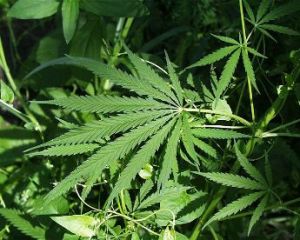Marijuana prohibition has not achieved its goals, but has inflicted significant costs on society and individuals, a pair of University of Washington researchers concluded in a report released last week. And all for naught, they suggest, because decriminalizing pot or deprioritizing marijuana law enforcement does not appear to lead to higher levels of marijuana use.

The scholarly duo found that the domestic portion of the federal drug control budget more than doubled in the 1990s, to more than $9.5 billion in 2001, with marijuana arrests accounting for nearly all the increase in drug arrests in that decade. With some 28,000 people imprisoned on marijuana charges in state or federal prison, that's an additional $600 million a year in incarceration costs borne by state and federal governments.
Despite the spike in marijuana arrests in recent years -- now more than 800,000 a year -- marijuana prohibition has signally failed to produce the desired results. Instead, the researchers found, the price of pot has dropped, the average potency has increased, as has availability, and use rates have often increased despite escalating enforcement.
"The report finds that the 'war on marijuana' is quite costly in both financial and human terms, and the prohibition of marijuana has not measurably reduced its use. This is a clear call for us to reconsider our laws and policies on marijuana," said Alison Holcomb, ACLU of Washington drug policy director.
What does not cause marijuana use rates to increase, said the researchers, are reformist policies. Areas that have decriminalized simple possession, deprioritized marijuana law enforcement, or that allow for medical marijuana have not seen increases in use rates, they found.
Comments
Thanks, but...
Kudos to the researchers for empiricizing the obvious, but their research will likely line Washington's trash cans like all the other truthful reports.
Add new comment